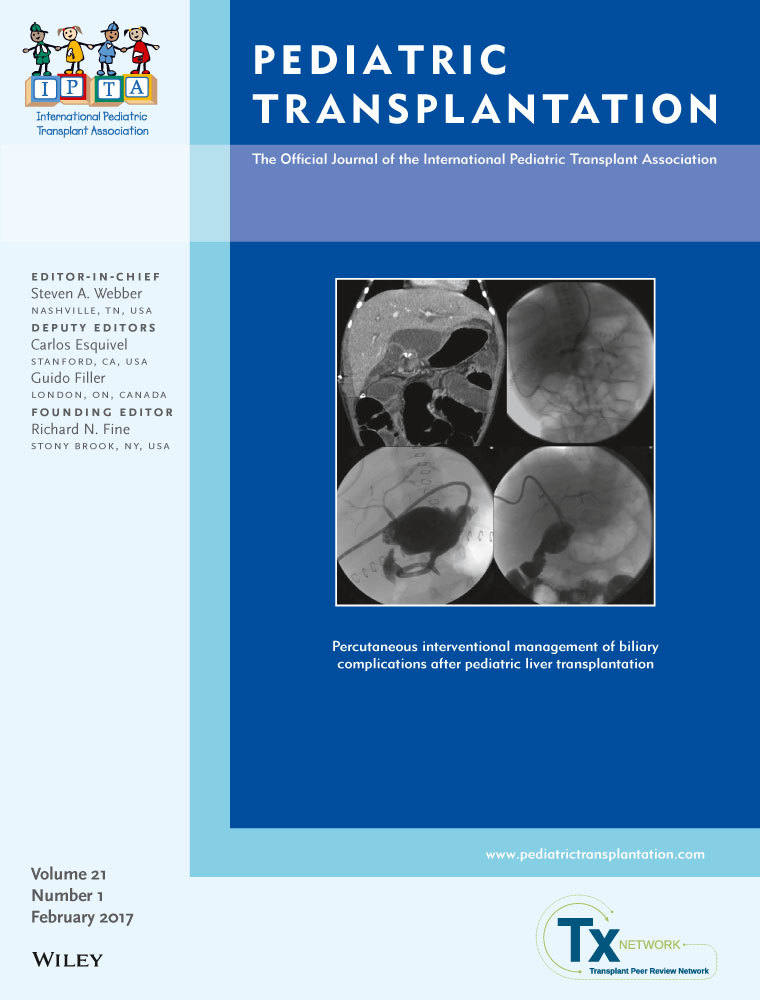De novo inflammatory bowel disease after pediatric kidney or liver transplant
Funding
Dr. Fernandes is partially funded by NIH Grant T32DK007762. Dr. Evason is partially funded by NIH Grant K08CA172288.
Abstract
A subset of children who receive a liver and/or kidney transplant develop de novo inflammatory bowel disease-like chronic intestinal inflammation, not explained by infection or medications, following transplant. We have conducted a single-center, retrospective case series describing the unique clinical and histologic features of this IBD-like chronic intestinal inflammation following solid organ transplant. At our center, nine of 327 kidney or liver recipients developed de novo IBD following transplant (six liver, two kidney, one liver-kidney). Most children presented with prolonged hematochezia and diarrhea and were treated with aminosalicylates. At time of diagnosis, five were not currently using mycophenolate mofetil for transplant immunosuppression. Histologic and endoscopic findings at IBD diagnosis included inflammation, ulcerations, granulomas, and chronic colitis. Since diagnosis, no patients have required surgical intervention, or escalation to biologic therapy, nor developed stricturing or perianal disease. In this case series, de novo post-transplant IBD developed in 4% of pediatric liver and/or kidney recipients; however, it often does not fit the classic patterns of Crohn's disease or ulcerative colitis.




